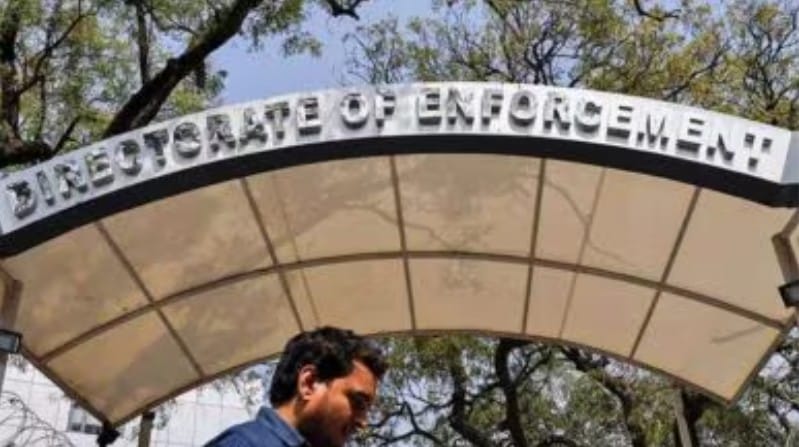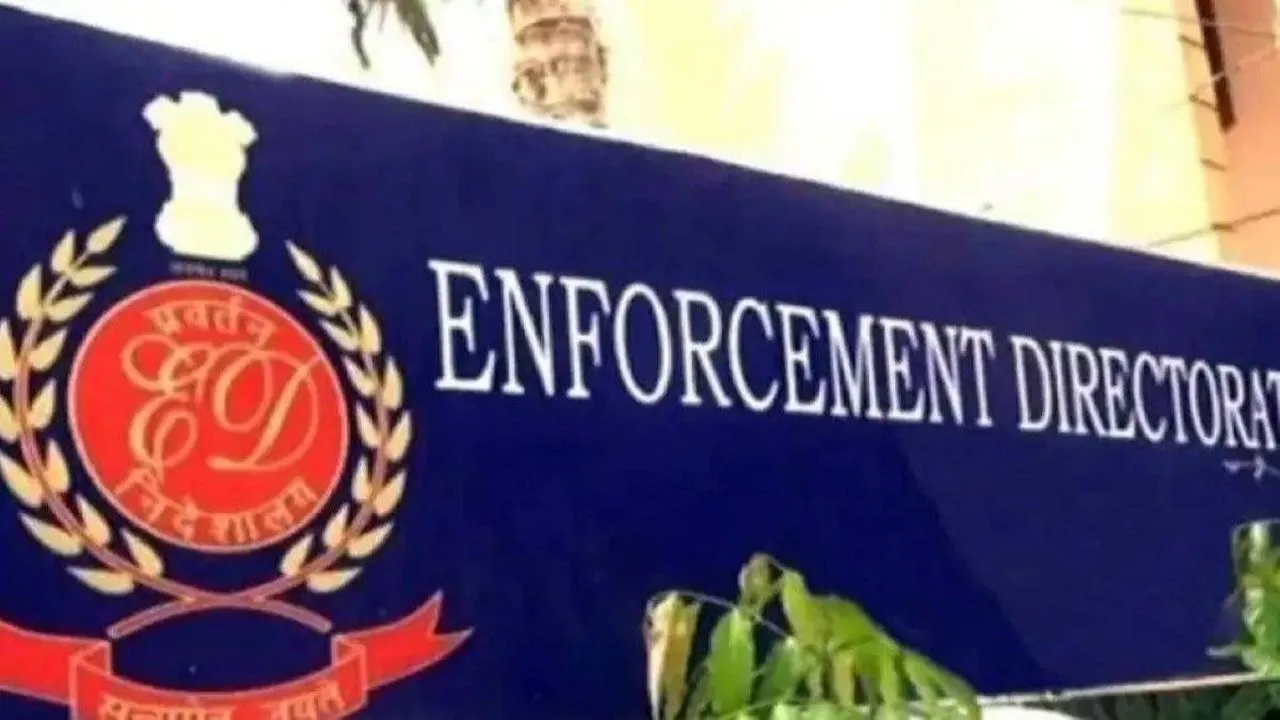The Enforcement Directorate (ED) has taken stringent action in the ongoing Valmiki Corporation scam, attaching properties worth nearly ₹5 crore belonging to the accused. The move comes as part of the agency’s investigation into alleged financial irregularities, money laundering, and fraudulent transactions conducted by the corporation’s key officials. Authorities stated that the attached assets include commercial and residential properties across Karnataka, intended to prevent disposal or transfer while the investigation progresses. The action marks a significant step in curbing the flow of illicit funds and ensuring accountability in high-profile corporate fraud cases.
Investigators revealed that the Valmiki Corporation allegedly engaged in multiple irregular financial schemes, defrauding investors and clients of substantial amounts. Initial inquiries suggested manipulation of accounts, unaccounted financial transactions, and creation of fictitious entities to siphon off funds. The ED’s move to attach properties is aimed at freezing assets linked to these illicit activities, ensuring that proceeds of crime are not alienated before the completion of legal proceedings. Officials emphasized that tracing and seizing properties is a critical tool in combating complex financial frauds.
The case has attracted attention from regulators, investors, and the general public, highlighting systemic gaps in corporate governance and oversight. Legal experts noted that such enforcement actions, while procedural, send a strong message to businesses about compliance, transparency, and accountability. Analysts observed that prompt investigation, asset attachment, and public disclosure of actions taken by authorities help restore investor confidence and deter future financial malpractices, especially in high-stakes corporate environments.
Investigation and Asset Tracing
The ED investigation has focused on financial audits, bank records, and transactional trails to identify assets acquired using allegedly laundered money. Authorities have been coordinating with state registration offices, banks, and financial institutions to verify ownership and valuation of properties. By attaching assets worth nearly ₹5 crore, the agency seeks to secure recoverable value for potential restitution to defrauded parties and maintain the integrity of the judicial process.
Investigators have also been examining connections between the accused and multiple shell companies allegedly created to divert funds. Tracing ownership structures and cross-referencing property documents with bank transfers form a crucial part of the investigation. Experts noted that such meticulous asset tracing is essential to prevent dissipation of ill-gotten wealth, ensuring that legal remedies are effective and enforceable.
Legal Framework and Implications
The Enforcement Directorate is acting under the Prevention of Money Laundering Act (PMLA), which empowers authorities to attach assets believed to be proceeds of crime. Legal analysts emphasized that such attachments are interim measures and do not preclude the accused from contesting claims in court. However, they act as a deterrent against property alienation and are often critical in safeguarding the interests of victims and the state.
Authorities clarified that the attached properties will remain under ED custody until the completion of investigations and any subsequent legal proceedings. The move also enables the agency to prevent the accused from hiding, selling, or mortgaging properties, which could otherwise frustrate the recovery process. Courts may later decide the final disposition of these assets based on the investigation’s findings and prosecution outcomes.
The ED’s attachment of properties in the Valmiki Corporation case has sent shockwaves across Karnataka’s corporate sector, signaling that financial irregularities will face strict scrutiny. Business leaders have expressed concern over the need for rigorous compliance and transparency in corporate operations. Experts note that the case reinforces the importance of regular audits, internal controls, and adherence to statutory obligations to prevent misuse of funds and maintain investor confidence.
Victims of the alleged scam have welcomed the attachment order, viewing it as a crucial step toward recovering their lost funds. Many had invested in the corporation believing in its legitimacy, and the freezing of properties provides hope for restitution. Legal advisors emphasize that timely enforcement of such measures can significantly improve the chances of compensation and deter similar fraudulent schemes in the future.
The case also highlights the challenges investigators face in tracing complex financial networks. Authorities must untangle layers of transactions, shell companies, and asset transfers to identify the full extent of the fraud. Experts stress that sophisticated financial crimes require multi-agency cooperation, advanced forensic accounting, and meticulous documentation to ensure accountability and successful prosecution.
Public perception of corporate governance in Karnataka has been influenced by high-profile cases like this. Analysts suggest that visible enforcement actions, such as property attachment, help restore trust in the financial system. They argue that demonstrating swift and decisive action against fraudsters is critical to reassuring investors, clients, and the wider public about the integrity of corporate operations.
Finally, the Valmiki Corporation case underscores the need for ongoing investor education and vigilance. Authorities and financial experts urge the public to verify credentials, scrutinize financial statements, and report suspicious activities promptly. Strengthening awareness, combined with strict enforcement, is seen as essential to preventing future scams and fostering a culture of accountability in Karnataka’s corporate sector.

Public and Investor Reactions
News of the property attachment has reverberated among investors, shareholders, and business observers. Many see the ED action as a strong step toward accountability in corporate malpractices. Investor advocacy groups welcomed the move, emphasizing that swift and transparent enforcement reinforces trust in regulatory systems. Public perception of corporate fraud is closely linked to the speed and effectiveness of enforcement actions, making such high-profile interventions critical for maintaining financial confidence.
Analysts have also highlighted the broader impact on corporate compliance culture. Companies are likely to reassess internal controls, financial transparency measures, and risk management frameworks in light of increased scrutiny. Experts argue that consistent enforcement and visible penalties for malpractices create a deterrent effect, reducing the likelihood of future scams and encouraging ethical business practices.
Expert Opinions on Financial Crime Enforcement
Financial crime experts noted that property attachments are increasingly used to curb money laundering and fraud in corporate sectors. By securing assets linked to illicit activities, authorities can maximize recovery potential and prevent dissipation of wealth. They stressed that coordinated efforts between investigative agencies, banks, and regulatory bodies are essential for tracking complex financial networks and enforcing legal provisions effectively.
Experts also emphasized the importance of public awareness and vigilance in detecting early signs of corporate malfeasance. Investor education, regulatory reporting mechanisms, and whistleblower protections are crucial complements to enforcement actions. A proactive and informed investor base can alert authorities to irregularities, aiding in timely investigation and prevention of large-scale financial frauds.
Timeline and Next Steps
The ED’s property attachment follows months of investigation, including financial audits, document verification, and cross-checking of corporate transactions. Authorities are expected to continue tracing other movable and immovable assets potentially linked to the accused. Additional arrests or attachment orders may follow as the investigation uncovers further evidence of financial wrongdoing.
Investigators have indicated that collaboration with state and central regulatory agencies will continue to ensure comprehensive scrutiny of the Valmiki Corporation’s operations. Court proceedings are anticipated in the near future, where the attached properties and recovered assets may be considered for restitution to victims or as part of penalties imposed on the accused.
Economic and Social Impact
High-profile corporate frauds like the Valmiki Corporation case affect investor confidence, market stability, and public trust in financial systems. By attaching properties and pursuing legal action, authorities aim to restore faith in regulatory enforcement and demonstrate that financial crimes will not go unchecked. Legal and financial experts agree that consistent, transparent enforcement is essential to mitigate the social and economic fallout of such scams.
The attachment of assets also serves as a warning to other corporate entities about the consequences of financial malpractice. It underscores the need for robust internal controls, transparency in financial dealings, and strict adherence to regulatory norms. Public and private sector stakeholders alike are urged to strengthen governance frameworks to prevent similar cases in the future.
Future Outlook and Enforcement Strategies
The ED has signaled that the Valmiki Corporation case is part of a broader strategy to tackle corporate financial fraud and money laundering in Karnataka. Authorities are expected to continue leveraging legal provisions under PMLA, enhancing investigative techniques, and coordinating with banks, financial institutions, and property registries to ensure effective recovery of illicit funds.
Experts predict that visible enforcement actions, such as property attachment and asset freezes, will enhance deterrence, reducing the likelihood of future scams. They stress that a combination of legal enforcement, corporate governance reforms, and public awareness is necessary to create a safer and more transparent financial ecosystem in the state.

Public Advisory and Awareness
Authorities have urged investors, business professionals, and the public to exercise caution when engaging in corporate or investment ventures. Verification of company credentials, scrutiny of financial statements, and reporting of suspicious activities are essential measures to prevent victimization. Experts recommend that stakeholders maintain vigilance, use regulatory helplines, and rely on verified sources to mitigate exposure to financial frauds.
The Valmiki Corporation case serves as a reminder of the importance of transparency, accountability, and due diligence in financial dealings. The attachment of properties worth ₹5 crore highlights the government’s commitment to tackling economic crimes, protecting victims, and strengthening confidence in the financial system.
Follow: Karnataka Government
Also read: Home | Channel 6 Network – Latest News, Breaking Updates: Politics, Business, Tech & More

